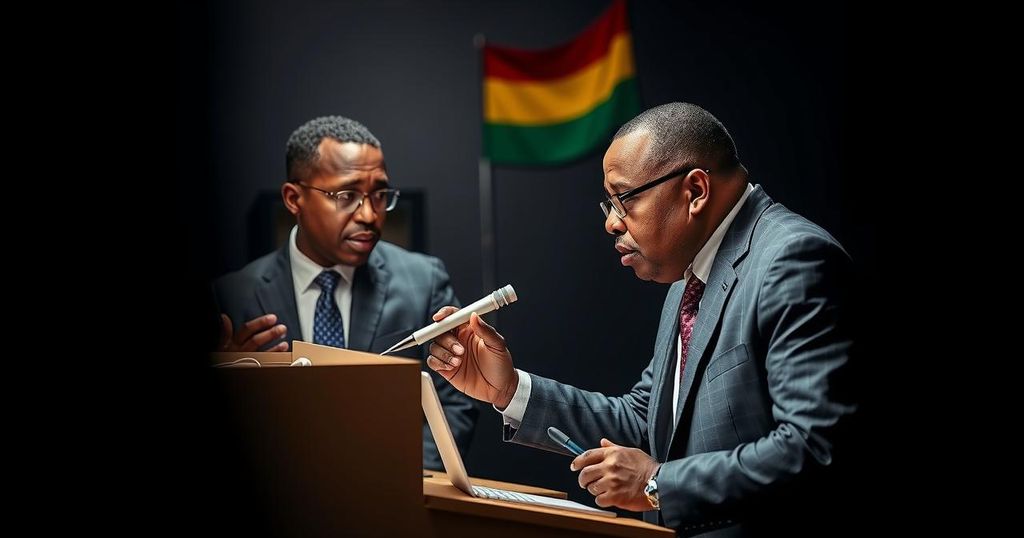Namibia Elections: SWAPO Faces Tough Battle Amidst Fragmented Opposition

Namibia’s elections see SWAPO, the ruling party since 1990, facing potential challenges amid declining support and a fragmented opposition. Key candidates include vice president Netumbo Nandi-Ndaitwah, running to be the first female president, and IPC leader Panduleni Itula, who previously garnered significant votes. The elections may indicate shifts in Namibia’s political landscape amidst a backdrop of regional governance challenges.
As Namibia embarks on its presidential and parliamentary elections, the long-standing ruling party, the South West Africa People’s Organisation (SWAPO), confronts notable challenges. Historically dominant since its independence in 1990, SWAPO has experienced declining support, as evidenced by the loss of its two-thirds majority and urban center control in recent elections. Political analysts suggest that despite the party’s setbacks, a fragmented opposition remains a significant factor in SWAPO’s continuing influence.
The presidential race features Netumbo Nandi-Ndaitwah, the vice president, who aspires to be Namibia’s first female president. Her platform focuses on job creation, addressing high youth unemployment, and women’s rights. However, she faces competition from IPC leader Panduleni Itula, an ex-SWAPO member who gained substantial support in past elections, signaling a potential shift in Namibia’s political landscape.
Despite these developments, analysts note that the substantial number of parties vying for seats may hinder cohesive opposition efforts, thus benefiting SWAPO. Furthermore, looming historical sentiments, particularly regarding Itula’s background, may also affect voter perceptions. As the polling unfolds, observers await the outcome, which will reflect not only SWAPO’s fate but also the evolving dynamics of Namibian politics.
The political atmosphere in Namibia is reflective of broader regional trends in Southern Africa, where historical liberation movements are witnessing diminished popularity. Following a similar pattern to neighbors like South Africa and Mozambique, SWAPO’s historical dominance has come under scrutiny, particularly after losing significant ground in recent electoral contests. Analysts argue that while the regional dynamics are relevant, the specifics of Namibia’s political context are unique. The elections draw attention to the political landscape where a multitude of parties, including IPC and Affirmative Repositioning (AR), are striving for influence. The struggle for power is complicated by SWAPO’s established presence and the systemic advantages that its incumbency provides. Namibian politics has historically been marked by personality conflicts rather than ideological divisions, contributing to the fragmentation of the electoral opposition.
In conclusion, Namibia’s upcoming elections represent a critical juncture for SWAPO and its challengers. While SWAPO has a secure footing, evidenced by its integral role in the country’s history, prevailing discontent and a fragmented opposition could potentially herald a shift in governance. The aspirations of presidential candidates like Nandi-Ndaitwah and Itula signal a changing political ethos that may challenge entrenched leadership. Observers will keenly monitor these developments as they unfold. This election cycle not only tests the resilience of SWAPO but also reflects the broader trends of political transformation across the region.
Original Source: www.dw.com







